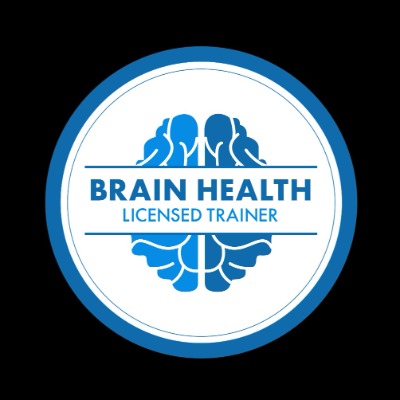Activity
Mon
Wed
Fri
Sun
Jan
Feb
Mar
Apr
May
Jun
Jul
Aug
Sep
Oct
Nov
What is this?
Less
More
Owned by Justen
Helping people accelerate the achievement of their goals in work and life by balancing their brains and exploring their minds.
Memberships
Skool Community
Public • 183.8k • Paid
The Skool Games
Private • 22.7k • Free
150 contributions to Neuropsyche Network
Is the My Mynd Project Dead?
Curious if the original intent of this project is fully shifted now?
1
5
New comment 2d ago

October Challenge: Could you integrate the 1% challenge this month?
As we step into a new quarter and a fresh month, this is your opportunity to reset and realign with your highest potential. Every new beginning offers us the chance to grow, and this October is no different. This month, let's focus on improving our states of consciousness through the teachings of Dr. David Hawkins. By working on our spiritual, physical, psychological, and biological processes, we can elevate ourselves, move away from suffering, and bring more love, joy, and growth into our lives. This week, we will dive into key areas that will help us align with our "top 1%," embracing the mindset shifts and habits that support continuous improvement. Whether it’s through small, deliberate actions like staying in your stretch zone, or focusing on your strengths, each step you take this month will build a stronger foundation for both your personal and professional life. Dr. Hawkins speaks of how spiritual growth and enlightenment can only come when we actively work on all aspects of our being—our body, mind, emotions, and spirit. As we prioritize self-care, time management, and conscious choices, you will start to experience how these changes ripple out, affecting not just you but those around you. Let’s make this month a reflection of our deepest desires for growth. Through meditation, journaling, and mindful action, you’ll have the tools to approach challenges with a clear mind and an open heart, setting the tone for a truly transformative quarter. This is your invitation to take small steps that lead to significant results. Now is the time to create new habits, focus on your strengths, and work in your stretch zone. Together, we can integrate these teachings into daily practice and raise our collective consciousness. Let’s support each other as we consciously make choices that improve our well-being and foster more peace, compassion, and fulfillment in our lives. 🌱✨ Enjoy the plan below to integrate this process. Seven-Day Plan: October Week 1 🗓️ Day 1: Start Living Your Top 1%
3
0

Do you trust your brain will deliver the insights and breakthroughs you need when the time is right?
I wanted to share some valuable insights from the Neuropsych Short "Your Brain at Work," with a focus on how you can improve, expand, and heal your mind by working on your brain reserve and making your tasks less difficult. The key is to conserve your mental energy and create conditions for success rather than forcing yourself to work harder when your brain is already exhausted. Key Insights from Your Brain at Work: - Conserve Your Mental Energy: Your brain’s ability to think well is a limited resource. Instead of constantly pushing yourself, prioritize and focus on tasks when your mind is fresh. Trying to multitask or forcing your brain to work when tired only leads to burnout and poor performance. Learn to recognize when your brain needs a break and take time to recharge. - The Impact of Distractions: You are surrounded by distractions—emails, notifications, even your own wandering thoughts. These can drain your cognitive resources and reduce your focus. As Your Brain at Work suggests, turning off your phone or closing your email while working on important tasks will help you preserve your mental energy and increase productivity. By creating boundaries around distractions, you give your brain the space it needs to function optimally. - Manage Arousal Levels: Your brain operates best when it has just the right amount of alertness. This is driven by two key chemicals: norepinephrine (related to alertness) and dopamine (related to interest). If your levels of these chemicals are too high, you’ll experience stress; if they’re too low, you’ll lose focus. Striking a balance, as discussed in Your Brain at Work, helps you find that “sweet spot” where your brain is engaged but not overwhelmed. - Break Through Mental Blocks with Insight: When you hit a mental block, your brain’s ability to solve problems logically decreases. The Neuropsych Short highlights that insight, or the sudden realization of a solution, often comes when you allow your unconscious mind to take over. This is why taking a break, walking, or meditating can help you unlock solutions that are beyond your immediate grasp.
2
0

10 Days to a Happier, Healthier You: Ready to Take Your Daily MEDS?
🌟 Just imagine feeling happier, healthier, and more connected to others in just 10 days. By focusing on meditation, exercise, diet, and sleep (your daily MEDS), you can take the first steps toward feeling better. The concepts in "Brain Wash" show us that while these habits are simple, they’re not always easy. But they are essential for rewiring your brain for long-term happiness. 🌱 The "Brain Wash" program emphasizes how our modern world often pulls us into instant gratification, leading to stress, disconnection, and unhealthy habits. It offers a 10-day plan to reset your brain, starting with small changes like digital detox, practicing empathy, improving your diet, and getting better sleep. Each step helps you find balance, feel more connected, and improve your mood. The concepts from the "Brain Wash" PDF align well with the message of achieving happiness, health, and connection through daily practices like meditation, exercise, diet, and sleep (MEDS). Here are key points that support this approach: 1. Modern World and Instant Gratification: The PDF explains how our modern world is great for instant gratification but terrible for long-term happiness. Our brains are wired for short-term rewards like sugary foods and social media, which lead to disconnection syndrome and chronic stress. This aligns with the importance of practices like meditation, exercise, diet, and sleep to rewire our brains for long-term well-being. 2. 10-Day Brain Wash Program: The PDF outlines a 10-day bootcamp program developed by Dr. David Perlmutter and Dr. Austin Perlmutter, designed to rewire the brain and cultivate healthier habits. This program emphasizes daily practices like digital detox, empathy, reconnecting with nature, diet detox, and sleep optimization, which are key components of taking your daily MEDS. These practices help you feel happier, healthier, and more connected within a short period. 3. Meditation: One of the 10-day program's focuses is on meditation. The PDF shares that practicing mindfulness and meditation can retrain your brain. Daily meditation can lead to increased connectivity within the prefrontal cortex, helping to manage stress and reduce anxiety. Starting with even 12 minutes of deep-breathing meditation can increase blood flow to the prefrontal cortex, which supports better focus and emotional regulation. 4. Exercise: Regular exercise is highlighted as a crucial factor in improving cognition and mood. Engaging in physical activity like a brief walk can activate the prefrontal cortex, boosting problem-solving, planning, and overall executive function. Exercise also reduces the risk of depression and enhances mood, which aligns with the concept of taking your daily MEDS. 5. Diet: The PDF discusses the modern diet's impact on brain health, emphasizing the importance of detoxing your diet to include more nutrient-rich, unprocessed foods. Eating right supports brain health by increasing serotonin production, which is essential for feelings of joy and contentment. 6. Sleep: Adequate sleep is crucial for maintaining brain health. The PDF explains that good sleep acts as a natural "shampoo for the brain," clearing out toxins and reducing impulsive behavior. It suggests optimizing your sleep routine by removing digital devices from your bedroom and setting a consistent bedtime to enhance overall well-being. 7. Empathy and Connection: Practicing empathy and gratitude helps combat disconnection syndrome.
2
0

1-10 of 150
@justen-martin-5958
Helping people turn goal setting into goal achieving by unlocking their full potential through balancing their brains and finding their minds.
Active 2h ago
Joined Nov 12, 2023
Denver, CO
powered by



